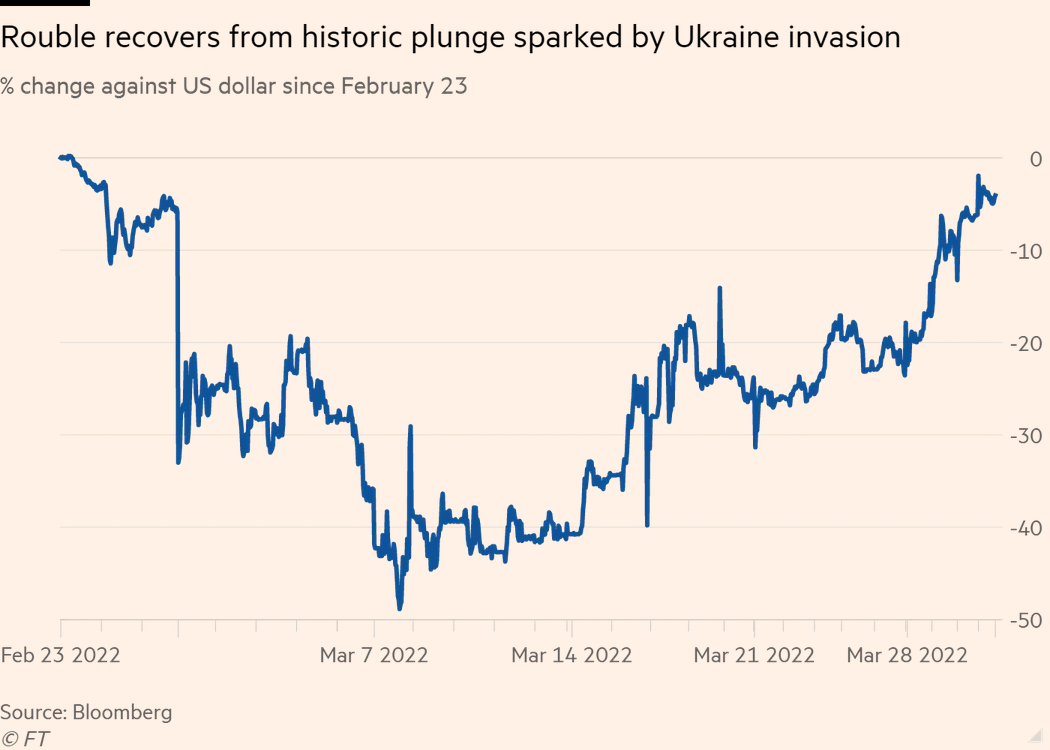April 04, 2022
BC NDP does not understand PSE
It seems as though all political parties in Canada do not understand what post-secondary education is for or where it sits in the economy.
Not to pre-suppose the outcome of the recently announced review, but it is quite clear that they are going to follow the OECD's outdated and outmoded policy frame from the 1990s.
There is also a specific line around supporting privatization of PSE.
Union leadership in the sector should be using their pull in the Party to demand a more egalitarian view of higher education beyond "skills".
Russia's Rouble is gaining ground
The rouble is on it's way back to where it was before the war even in the face of massive sanctions that have effectively cut it off from Western money exchange markets – making it a non-convertable currency. Why is the exchange rate back to where it was then?
The way that money exchanges and sanctions work mean that the currency is actually two different kinds of money: a convertable (to some non-US/EU currencies) and a means of exchange within the Russian borders. The exchange rate is only related to the places where it is being exchanged, and so is not longer relatable to the US dollar.
The Russian banks are taking a page out of the Cuban playbook here and tightly controlling the internal money market while acting aggressively on any commodity exchange to assert the value of its rouble.
The result is counterintuitive where value is only flowing into the country.
The question for Russians should be focused on where that value is ending-up. Costs are increasing rapidly for all imported goods and the economy is being dragged down.
The future of the Russian economy and the sanctions regime will be interesting to watch. It is clear that the global sanctions program being used against a G20 country has been successful. The problem is, now that this trigger has been pulled, will the non-aligned rest of the world stand for this?

UN report on global warming solutions delayed by top polluters
- US, China and Saudi Arabia wrangle about responsibilities for greenhouse gas emissions
Humidity and carbon dioxide are measured at a mangrove plant near Panama City
With global emissions still rising, the earth’s temperature is “likely” to warm by more than 1.5C, the goal of the Paris climate accord, during this century even once national climate targets are taken into account, the report finds. Temperatures have already risen by 1.1C since the pre-industrial period.
Limiting warming to that level will require a 43 per cent cut in global greenhouse gas emissions by 2030, compared to 2019 levels, and will probably also require carbon dioxide removal strategies at the same time.
For the first time, the report highlights the importance of removing carbon dioxide from the atmosphere through measures such as planting trees, using machines to pull carbon dioxide from the air, or through carbon capture and storage.
Instead of falling, emissions rose 6 per cent in 2021 and are expected to rise again this year in line with the level of economic activity.
The dramatic reduction required would mean the use of traditional coal would have to fall by 95 per cent by 2050, the report says.